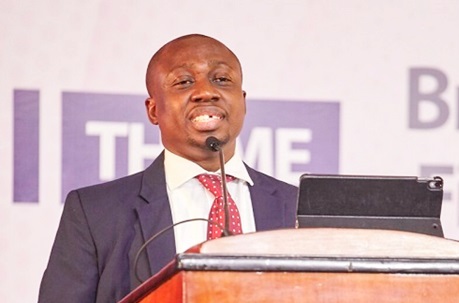
Reform Ghana’s tax laws: PwC partner proposes
A partner at PwC Ghana has called for a comprehensive reform in the country’s tax laws to make them simpler and to encourage compliance, especially for people in the informal sector.
Abeku Gyan-Quansah said simplification should precede the design and implementation of any approach to informal sector taxation.
Addressing a virtual public lecture by the Institute of Chartered Accountants, Ghana (ICAG) in Accra last Friday, Mr Gyan-Quansah said the government should take steps to modify the over 27 tax laws in order to make it easier for compliance.
The virtual forum hosted several speakers such as the Chief Executive Officer (CEO) of CBS Consulting Limited, Dr Valentin Mensah; a Senior Lecturer of the School of Economics, University of Cape Coast (UCC), Prof. William Brafu-Nsaidoo, and Senior Lecturer of the School of Economics, UCC, Dr Francis Kwaw Andoh.
It discussed topics such as Critical Evaluation of Ghana’s Asset Declaration Regime, Managing Ghana’s Debt and its Sustainability and Roping the Informal Sector into Ghana’s Tax Net.
Forum
It attracted more than 200 participants, mainly from the accounting profession.
“We are proposing a thorough RESET (reassure, educate, simplify, enforce and trust) of our tax regime so that we can rope in the informal sector,” Mr Gyan-Quansah said.
Speaking on the topic: “Roping the Informal Sector into Ghana’s Tax Net”, Mr Gyan-Quansah said it was prudent to assure the citizens of the protection of the public purse by deeds, and to link it to public investment.
He said there was the need for continuous education by collaborating with stakeholders in the tax space to reduce ignorance associated with non-compliance.
“The government did not consult us (Institute of Tax and Fiscal Policy) on the introduction of the electronic transaction levy, and so going forward, I believe the government should have more conversations with experts on taxes to help design appropriate ways to implement them,” he said.
He said there was also the need to simplify the tax structure and link it to the modified taxation system for ease in compliance.
Mr Gyan-Quansah indicated that the government was required at this moment to design modules to enforce and monitor to ensure that the tax laws were applied fairly.
He added that the Ghana Revenue Authority (GRA), as the tax authority, needed to build trust and professionalism in its operations to encourage respect and compliance.
Managing Ghana’s debt
On Managing Ghana’s Debt and its Sustainability, Dr Andoh noted that the government should set limits on the number of funds as non-concessional external borrowing.
He said this amount should be prioritised for spending on infrastructure and other productive sectors with higher returns.
He said there was the need to strengthen the debt management capacity to enable the fiscal authorities to undertake regular assessment and analysis of alternative borrowing and resource mobilisation options and to identify their respective costs and risks implications.
He said as a means to improve domestic revenue mobilisation in the era of the COVID-19 pandemic, the government should consider reviewing and reforming the current tax exemption policy regime to improve tax revenue outcomes.
“The regime, at present, is subject to substantial abuse, with extensive lobbying for preferential treatment.
“In addition to reforming the exemption regime, there is a need for a robust investigative and surveillance system to identify and curtail such practices,” he said.
For his part, Dr Mensah said considering the current level of perceived corruption and conflict of interest in the Ghanaian public sector, an effective disclosure of assets and interests of elected and public officials was imperative.
That, he said, was to reinforce transparency, and also secure the political control of the citizenry for a sustainable democracy.
He added that the current legal framework needed to be reviewed and amended to ensure that the disclosure system was based on exhaustive, clear and appropriate legislations to enable it to play its expected role as a powerful tool for fighting corruption and conflict of interest.